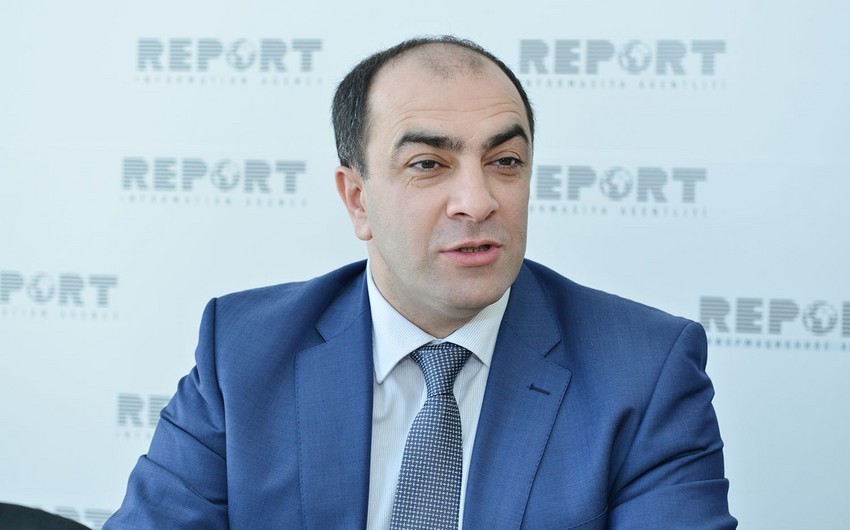Rovshan Taghiyev, the head of the United Congress of Azerbaijanis in Ukraine (KOUA), spoke with the Eastern European Bureau of Report about the role of Azerbaijanis in Ukraine's life amid war, the assistance they have provided, and their desire to participate in the postwar reconstruction of Ukraine.
- What role do Azerbaijanis in Ukraine play during the ongoing war?
- The war in Ukraine has been ongoing for four years now, and it has become the bloodiest war in Europe this century. Over a million people have been killed or wounded, and around 15 million have been displaced, imprisoned, or are living under occupation.
The damage to the country exceeds a trillion dollars, according to internal estimates. The Western figures and reports from various analytical centers don't reflect the true scale of the destruction.
Azerbaijanis, like many other nationalities, have also been victims of this war, with over a thousand of our people killed or injured. The material losses of more than 100,000 Azerbaijanis total billions of dollars, and Azerbaijani businessmen have suffered losses amounting to hundreds of millions of dollars.
Azerbaijanis in Ukraine have worked in many sectors, including large manufacturing companies, hospitality, agriculture, and more. But our people, especially those who have lived here for years, have been actively involved in evacuation and providing assistance from day one. Representatives of our community in cities like Kyiv, Ivano-Frankivsk, Odesa, Kharkiv, Mykolaiv, Lviv, Zakarpattia, Chernihiv, Dnipropetrovsk, Sumy, Poltava, Chernivtsi, Cherkasy, Zhytomyr, and others are very active.
We have provided more than 120 vehicles, up to 500 drones, monthly deliveries of medical equipment, 100 containers with food supplies, and more. Azerbaijanis have been awarded honors by various governmental and public organizations for their humanitarian efforts. And this work will continue even after the war, especially during the reconstruction of Ukraine.
- How do Azerbaijanis in Ukraine feel in light of the recent developments in international relations?
Ukraine is now facing the same injustice from the international community that Azerbaijan once faced. Naturally, this is affecting Azerbaijanis here as well. We believe that the entire population should unite and focus their economic power on military needs—basically, the country needs to rely on itself. The Azerbaijani model is often cited as an example in this context.
Despite the efforts of the major world powers, there is no hope for a quick end to the war. The ultimatums from Russia are unacceptable to Ukraine, and neither the Ukrainian society nor the President of Ukraine accepts them.
Unfortunately, European countries, as well as some forces in the United States, are blocking aid to Ukraine. That's why Ukraine is developing its own local industry. For example, just three years ago, Ukraine didn’t produce any drones, but now it produces 2 million drones a year. This situation applies to other industries as well. The war has consolidated Ukrainian society so strongly that the barriers between different nationalities living here have disappeared, and a new concept has emerged: Ukrainians.
- There are elections expected in postwar Ukraine. What are the real chances for Azerbaijanis and other ethnic minorities in regional elections?
- Elections are important in terms of democracy. However, I believe it is premature to talk about elections in the current conditions. The situation is not just or favorable for fair elections. The war is still ongoing, and considering the large-scale migration of the population, with many people either fighting or living in combat zones, it’s impossible to conduct a normal election campaign.
But in the future, after the war, Azerbaijanis, like other nationalities, will undoubtedly be more actively and effectively involved in the legislative and executive structures of the state on an equal basis.


 https://images.report.az/photo/af78bfe5-cc13-38df-aa61-c89e033954e2.jpg
https://images.report.az/photo/af78bfe5-cc13-38df-aa61-c89e033954e2.jpg

